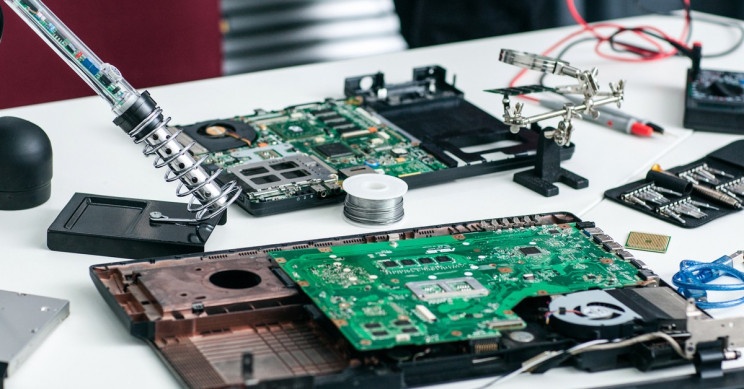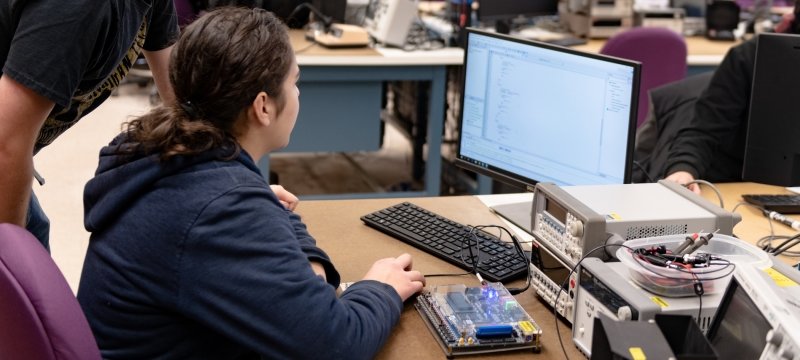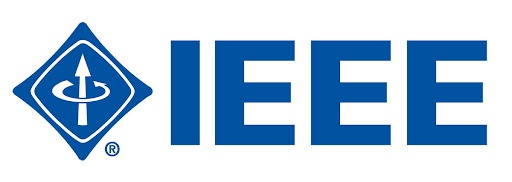Computer engineering (CE) is a section of engineering that deal with elements of computer science and electrical engineering. It is an engineering discipline that seeks to design and equip digital devices with efficient software that meet technological, scientific and administrative needs of any industry.
There is a big different between computer science and engineering. While computer engineers (CEs) are involved in all stages of building computer hardware and software, computers scientists only know the underlying theory of programming languages, computation and operating systems.
Job Description
What does a computer engineer do? Their primary responsibility is to design, develop and promote technological devices that are cheaper, faster, smaller and smarter.

Below is a breakdown of other responsibilities of computer engineers:
- They develop efficient hardware for the generations to come.
- Design and implement applications.
- They are responsible for designing and analyzing computer architectures.
- Design and analyze computer network, hardware, protocol and communication systems.
- They design and implement computer processors for secure storage of data and error-free transmission of data
- Design computer interfaces systems for efficient communication and factory automation.
Software and Hardware Engineer
Software engineers are experts who have studied software engineering. They apply principles of software engineer to plan, design, develop, test, evaluate and maintain systems, software and everything that make computer and other technological devices work. They are experts in software structure, computing systems and recognition of various problems of existing hardware.
Software engineering is a complicated discipline that involves the use of algorithms, flowcharts and diagrams to tell computers to perform functions they were intended for.

Hardware engineers are experts who research, plan, design, develop, test, evaluate and maintain various components of computers and technological devices. They deal with a broad range of components such as processors, networks, memory devices, circuit boards and routers.
The discipline involves the creation of new directions in computer hardware.
How to Become a Computer Engineer
According to our latest research, a bachelor’s degree in IT, software engineering, computer science, information systems and other related disciplines is the basic requirement for those who want to become professional CEs. However, some specific jobs require individuals with a master’s degree in any of the above discipline.
Depending on the major selected during undergraduate study, the program curriculum may include coursework data structures, programming languages, software design and systems analysis.

Graduate studies in CE will involve advanced training on the selected field within the curriculum. This may include advanced studies in areas of research and artificial intelligence, software quality and testing or enterprise architecture.
Certification
Certification is not part of the job requirement, but it is recommended by many employers. CE graduates looking for certification can get it from professional trade organizations.
IEEE Computer Society is one of the bodies in the United States that certify computer engineers.
Additionally, if you have specialized in a specific software program, you may obtain certification through vendors that distribute them.
Work experience
Some positions requires candidates who have obtained relevant work experience from technology companies.
Joining a trade association
it also requires individuals to join trade associations. These associations come with a broad range of benefits such as offering professional networking resources, continuing education opportunities and industry updates.
One of the professional trade associations that many engineers join includes the International Association for Computer Information Systems.
Job Requirements
A bachelor’s degree in CE or related discipline is the minimum education required for one to work as a computer engineer. Most employers hire candidates with a bachelor’s degree in computer engineering, electrical engineering, computer science, information systems, programming or any related degree.

According to the recent trend, many employers prefer students with programming skills.
Some positions require candidates who have gone through internships with a relevant company or institution.
An internship is the best way for computer graduates to learn skills needed to be a successful engineer. It offers hands-on experience, which is important for skill building and career exploration.
A professional engineer should supervise any internship.
As stated earlier, certification is not a requirement for one to be employed as a computer engineer. However, many employers prefer individuals who have obtained various certifications.
Graduated students can get certification from the IEEE. A bachelor’s degree in a computing related degree and relevant work experience is required to sit for IEEE certification exam.
Credentials & Certification
Computer engineers should obtain credentials and certification from recognized bodies if they want to demonstrate that they have advanced knowledge and skills in certain areas of computer engineering.

Common types of CE certifications that most employers recognize include general certification, vendor-neutral certification and vendor-specific certification. Specific examples include:
- Professional Software Engineering Master Certification: This is provided by the IEEE to graduates for the purpose of demonstrating proficiency in software engineering construction, quality and management.
- CCNP Wireless: This is provided by Cisco Systems to any graduate who wants to demonstrate proficiency in wireless networking principles, planning, design process, development procedure, implementation stages, installation, testing and operation.
- ARM Accredited Engineer: This is provided by ARM; one of the most reputable multinational company that deals with software design and semiconductors. It is offered to graduates or undergraduates for the purpose of demonstrating proficiency in ARM software design, architecture and implementation.
- CSIH Certification: This is provided by Carnegie Mellon University Department of Software Engineering for the sole purpose of demonstrating proficiency in networking administration and security.
Recommended Skill Sets
Skill sets for hardware engineer includes:
Operations analysis, mathematics, science, programming, troubleshooting, active learning, speaking, critical thinking, reading comprehension, active listening, technology design, judgment and decision making, complex problem-solving, installation, management of material resources, equipment selection, quality control analysis, coordination and systems analysis.
Skill sets for software engineer includes:
Mathematics, monitoring, persuasion, installation, equipment selection, systems evaluation, critical thinking, instructing, learning strategies, writing, coordination, time management, speaking, active listening, programming, quality control analysis, systems analysis, operations analysis, reading comprehension, decision making, judgment making, technology design, active learning, troubleshooting, complex and problem solving.
Job Outlook, Salary and Benefits
Employment of computer engineers is expected to grow by 10% in the next ten years. Technological advancement and innovations will lead to the increased demand for CEs.
Currently, the average annual salary is around $127,038 per annum while the average hourly salary is $61.07 per hour. This salary is considered higher compared to other professions.
Those who work for several years in one field become successful computer engineers. Their salary increases steadily immediately after employment.
The salaries of CEs also vary depending on their expertise in other disciplines such as marketing, finance or management. Therefore, specializing or staying in a certain field is essential to advancing and remaining employable.
Regarding career benefits, this is a rewarding career. Below are opportunities and rewards that this career offers.
- Variety of Career Opportunities
- Job Satisfaction
- Creative Thinking
- Challenging Work
- Potential to Benefit Society
- Intellectual Development
- Financial Security
- Professional Environment
- Prestige
- Technological and Scientific Discovery
Pros and Cons of Being a Computer Engineer

Pros
- This is one of the careers that pay well with an average annual salary of $102,450.
- The typical work environment is clean. Some companies have extra rooms where their employees can relieve their stress.
- CE positions guarantee financial security.
- The demand is growing, so individuals are guaranteed jobs upon graduation.
- Individuals with specific skills can improve the performance of their computers without hiring other people to do so.
- No need to rely on employment, they can choose to be freelancers.
Cons
- It takes many years of studying to become a certified engineer.
- This career is somewhat a mentally challenging profession.
- They constantly need to keep up with the constant updates on the new computers.
- It can be very stressful. It involves performing difficult tasks, requires one to meet strict deadlines and deal with difficult customers.
- They need to work more hours, typically from 8 am to 5 pm. Sometimes, they are required to work overtime and during the weekend to meet the customer’s demands.
- They need to stay up to date with technological innovations and advancement.
Career Advice and Tips
- Don’t focus solely on computer engineering. There is life beyond computers that you need to open your life to.
- Learn how to learn. Learn how to get more information yourself instead of relying on what your instructors tell you. If you don’t understand what you have learned, try to figure out the reasons why you are not understanding.
- Build your own computer. It may sound difficult at first if you have not done it before, but it is not if you do more research and plan how to do it.
- As a student, it is time you start thinking of running your own DNS, Web and email servers.
- Don’t wait until you graduate to own a website. Buy a domain name and start building your website from scratch. Avoid using shared hosting.
- Read any science paper that you find interesting. You may find some work such as academic papers unfriendly at first. But with time, they will turn out simple and readable.
- Attend security conference and talk to experienced professionals to learn their culture.
- Listen to a podcast for CE education and security news.
- Read a lot of books about computer science & engineering, information technology and related disciplines.

Below are key areas where CE professionals should focus on:
The next billion customers
Computer and information technology industries revolution is expected to reach a billion people in the next five years. Many of this population will be illiterate.
Professional engineers should focus on innovation of computer or technological devices with non-English interfaces and that respond to non-text languages such as voice or signs.
Usability
Information technology (IT) continues to touch the lives of many people. However, many of these people are not “tech savvy” and, therefore, need to learn about new computer devices.
Computer engineering professionals should, therefore, get committed to designing and developing user-friendly devices.
Presentation skills
This is one of the most important skills that every computer engineer should have. This is because all specialties under CE (software and hardware engineering) involve practical knowledge rather than theoretical information.
Presentation skills will help one explain various processes of designing and implementing a software or hardware.
